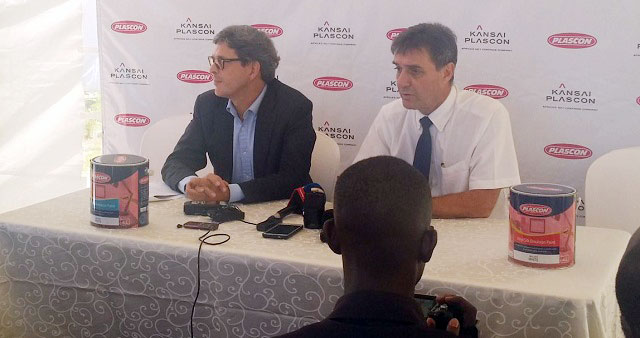
Inside the AkzoNobel, Kansai Plascon tussles to control top paint brand name
Kampala, Uganda | ISAAC KHISA | Dutch paints and Coatings Company AkzoNobel Coatings International BV which owns Sadolin brand name in Uganda is locked in a battle for market control with Kansai Plascon of Japan.
The case is before the commercial court and details are scanty but experts say it could set a precedent locally for the transfer of company assets of a franchisee, including the brand name, in case of a takeover.
The brand name fight started soon after Kansai Plascon announced in August that it had acquired Sadolin East Africa for about $125 million.
A surge in paints and coatings demand on the back of middle class-driven construction sector growth has made the Ugandan market quite attractive for manufacturers and until now, Sadolin has been a major player.
When Kansai Plascon, which already operates in Kenya and Tanzania with exports to South Sudan, Burundi and Rwanda, sought to enter the market, it appears to have adopted a frontal attack approach to annihilate the Sadolin brand.
Johann Smidt, the managing director for AkzoNobel Decorative Paints in Sub-Sahara Africa says, in accordance with the contractual agreement, Kansai Plascon was obliged to manufacture, sell, market and advertise Sadolin brand until the end of January 2018.
Instead, AkzoNobel says, Kansai Plascon immediately announced that Sadolin is migrating to Kansai Plascon.
“The claims that Sadolin is migrating to Kansai Plascon are false and misleading the public as Sadolin has been owned by AkzoNobel since 1987 and was never owned by the local licensee, Sadolin Paints East Africa,” Smidt told The Independent.
AkzoNobel, which is headquartered in Amsterdam and operates in around 80 countries with Sadolin and Dulux being its well-known brands, on Sept.13 cancelled the licence agreement it had with Kansai Plascon citing breach of contract.
He says since Kansai Plascon acquired Sadolin East Africa, they engaged them to ensure that there is continued supply of the Sadolin brand to the market but that AkzoNobel plan appears to have failed.
“This responsibility has not been upheld and actions by Kansai Plascon indicate deliberate breaches of the contract as evident in the over-labelling of Sadolin packs with Plascon labels,” he said adding, “This behaviour, amongst other activities, has left us with no choice but to cancel the agreement with immediate effect to protect our Sadolin brand and ensure supply to the Ugandan people.”
Schmidt says unlawful activities by Kansai Plascon have caused recent market disruption in supply of the Sadolin brand on the Ugandan market.
“This has prompted us to engage in conversations with a new partner, a partner that meets the strict AkzoNobel and Sadolin requirements and product quality standards. Much progress has been made in this respect,” Smidt added.
 The Independent Uganda: You get the Truth we Pay the Price
The Independent Uganda: You get the Truth we Pay the Price



